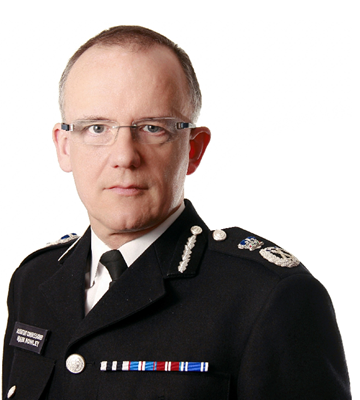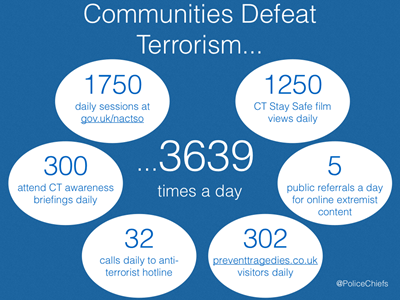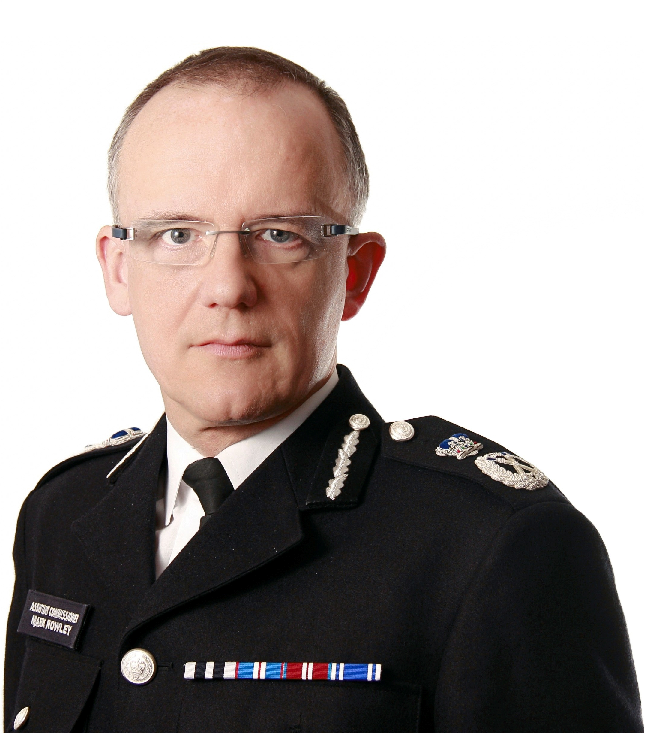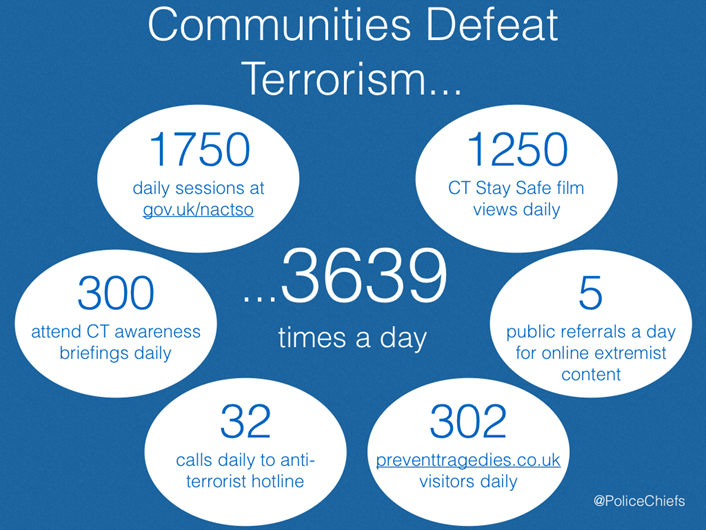01 Aug 2016
Mark Rowley blog: Communities defeat terrorism - 3639 times a day
We have all been facing a severe level of threat - meaning "an attack is highly likely" - for nearly two years now. And whilst we have thwarted a number of terrorist plots in that time, we are not complacent and continue to do everything we can to protect the public.
The Met Commissioner Sir Bernard Hogan-Howe wrote this week that the UK is “a hostile environment for those intent on terrorism”. As national lead for counter terrorism policing I couldn’t agree more.
The Commissioner described some of the steps we are taking to further strengthen our ability to protect communities, including more counter terrorist detectives and more specialist firearms officers.
In the UK we have many advantages in countering the terror threat including being an island nation with border controls, tight gun laws and a well-practised national security machinery of police and security and intelligence agencies working closely together.
But for me our greatest advantage is the cooperation between the public and the police. It has often been said that “communities defeat terrorism” and now that's more important than ever before.
The true scale of that collaboration is impressive, but rarely explained. The fact is that we see at least 3639 contributions from the public every day, helping keep us all safe in our collective effort against terrorism.
For example, every day ordinary men and women demonstrate their continued trust in UK policing by calling our confidential hotline to pass on potentially important information; calling 101 or speaking to neighbourhood officers to report concerns about someone who may be being radicalised; attending counter terrorism awareness events or learning how they can help protect themselves and their colleagues; or referring extremist content online so it can be removed.
Every call, every referral, every briefing is part of our joint fight against terrorism. The information we receive helps our investigations, intelligence-gathering and preventative work; they help us carry out significant protective security operations; they help us get the right support for vulnerable people, and they undermine the plans of terrorists. Indeed, some of our highest priority investigations have benefitted from information from communities.
However, with the enduring severity of the threat, we need even more public assistance to help keep us all safe. And while we greatly value the hundreds of daily acts from the public, now is a good opportunity to set out the six key ways people can help.
Reporting suspicions and concerns:
1. By calling the confidential anti-Terrorist Hotline on 0800 789 321 to pass on potentially crucial information about suspicious activity - on average we get 32 calls a day from the public;
2. By calling us with concerns about someone who may be being radicalised or learning about specialist services and support for vulnerable people - we already get on average two referrals every day from the public on top of the dozens more from statutory bodies like social services and health; while 300 people visit our Prevent Tragedies for advice and support every day;
3. By reporting violent extremist material online to our Red Stop Button to help us remove illegal terrorist material from the internet - on average we get five referrals from the public every day with many more from third sector organisations resulting in thousands of pieces of extremist online content being removed every week.
And by being prepared:
4. By visiting www.gov.uk/nactso to get valuable advice and information from specialist police teams on how to protect your home or business - on average over 1750 sessions are recorded daily;
5. By taking part in our counter terrorism training and awareness events to help boost security in the workplace - on average 300 people a day are briefed or trained by specialist police officers and staff;
6. By watching our Stay Safe film so that should the worst happen and you are caught up in a weapons attack that you can take steps to save your and other's lives. Since its public launch there have been on average 1250 views every day.
All of these contributions are critically important to our ability to keep each other safe. So, while you can rely on us to work flat out, doing everything we can to protect you - whether it’s arresting record numbers of people for suspected terrorism-related offences (330 people last year), protecting vulnerable people and locations or strengthening our firearms response as Sir Bernard described, our collective safety depends on everyone's efforts.
To all those people I want to say thank you. With every call, every referral, every click and every other contribution you help make our communities safer.
Assistant Commissioner Mark Rowley, NPCC lead for Counter Terrorism
Contact information
Communications office
By phone: 0800 538 5058
By email: press.office@npcc.police.uk




